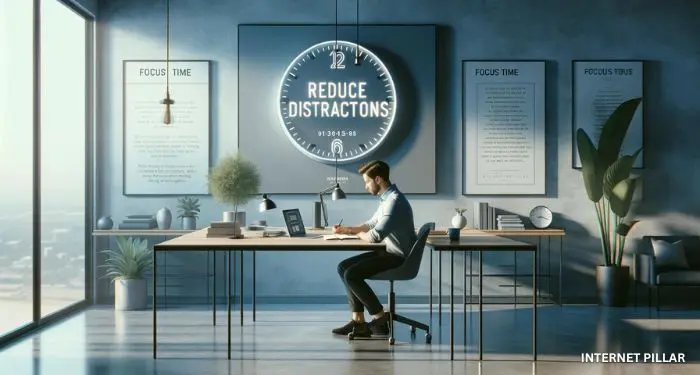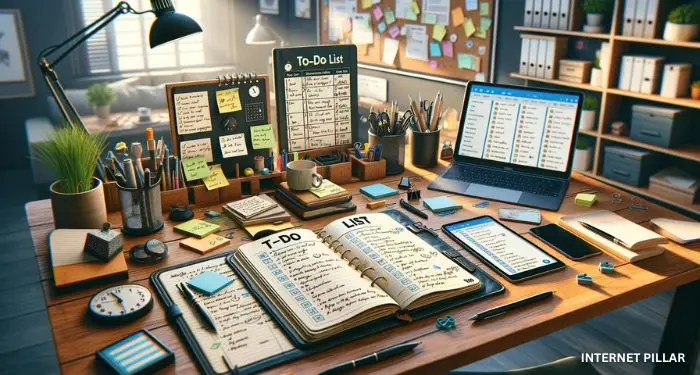Procrastination is common, with 20% of adults doing it and it is even more typical among college students—up to 90% admit to delaying tasks.
It is often a major stress factor and can lead to missed deadlines and other problems.
The reasons behind procrastination can vary, including stress or a desire for perfection.
But the good news is, there are effective strategies to beat it.

By understanding why you procrastinate and applying proven tips, you can improve your time management skills and kick the procrastination habit for good.
Let’s get started.
15 Practical Ways to Stop Procrastination
1. Recognize the Issue
The first step in tackling procrastination is acknowledging its presence.
Review common causes of procrastination to determine which resonate with you.
Understanding the root of your hesitation is important for finding a solution.

2. Goal Setting
For those whose procrastination stems from perfectionism or fear of failure, it’s beneficial to set clear, achievable goals.
Engage with instructors for guidance, as they can offer support and help ease the journey towards project completion.
3. Develop an Action Plan
Craft a plan of action by jotting down goals in a journal or utilizing digital tools like calendars to keep track.
This structured approach aids in maintaining focus and encourages continuous progress.
4. Establish a Routine
Research highlights the importance of daily habits in achieving long-term success.
Allocating regular time to project tasks, even small ones, can reduce stress and seamlessly integrate responsibilities into everyday life.

5. Prioritizing Tasks
Efficient time management involves ranking tasks by deadline and effort required.
Tackling the most daunting tasks first, without neglecting others, helps in managing workload and reducing stress.
6. Break Down Tasks into Small Chunks
Large projects can seem daunting until they’re divided into smaller, manageable parts.
This strategy can demystify the project, making it appear more approachable and less intimidating.
7. Set Deadlines
To maintain momentum, set personal deadlines for each small task within a project.
This approach keeps you engaged and on track to complete the project confidently and punctually.
8. Reduce Distractions
To minimize procrastination, it’s important to create a distraction-free environment.
This might mean turning off digital devices and finding a quiet space to focus solely on the task at hand.
Establishing dedicated work periods each day can significantly enhance productivity.

9. Adapt to Changes
Accept that not everything will go as planned. Unexpected interruptions are part of the process.
The key is to remain flexible and continue progressing, even when faced with unforeseen challenges.
10. Implement Time-Management Strategies
Explore and apply proven time-management methods like the 80/20 Rule, which suggests that the majority of results stem from a fraction of efforts.
Setting clear boundaries and optimizing your workspace can also contribute to more efficient time use.
11. Maintain a To-Do List
A daily to-do list, whether digital or on paper, can help keep project phases and daily goals organized and visible, ensuring a structured approach to tackling tasks.

12. Reward your Achievements
Recognizing and rewarding your progress is essential for motivation.
Treat yourself to enjoyable activities or small rewards as you complete significant milestones, reinforcing positive behavior.
13. Seek Guidance
Consider reaching out to peers or mentors who excel in time management and project completion.
Collaborating with or learning from someone who has successfully overcome procrastination can provide valuable insights and strategies.
14. Embrace Imperfection
It is important to acknowledge that perfection is not the goal; learning and improvement are.
Giving yourself the leeway to make mistakes can alleviate pressure and foster a healthier approach to academic and personal growth.
15. Take Immediate Action
The best time to start making changes is now. Delaying action only perpetuates procrastination, so take the first step towards improvement today.
So, these were some of the ways to stop Procrastination.



